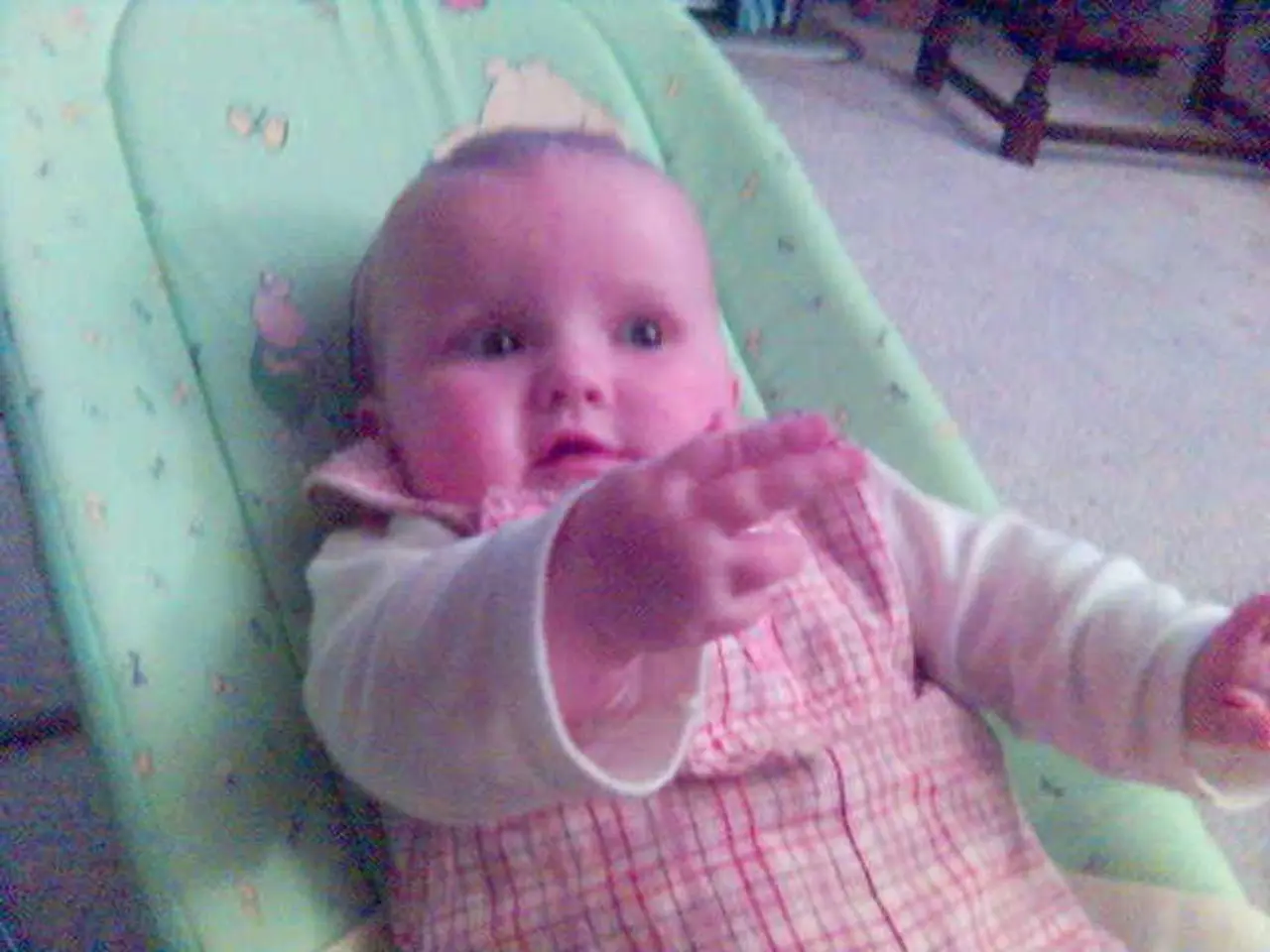Infant Developmental Achievements up to Age 5: A Look at Premature Progression
In the journey of parenthood, understanding the developmental milestones of our children is crucial. This is especially true for preterm infants, who may face unique challenges in reaching these milestones. Here's a guide to help parents of preterm infants and toddlers track their child's progress.
At 15 months, a preemie may begin to show signs of independence. She might try to feed herself with a spoon, give kisses, and say 'hi'. Around the same age, she may also start to walk on her own, climb onto furniture, and address the caregiver as "mama".
By 18 months, a preemie can engage in pretend play, such as feeding a doll, and say at least 5 to 10 different words. She may also start to use two continuous words other than 'mama' or 'dada', and follow simple instructions. At this age, she can scribble on paper with a pencil, walk without help, and sometimes run.
At two years old, a toddler's development continues to progress. She can talk in simple sentences, follow 2-part instructions, and wash her hands without help. She may also start to help with easy household work and eat on her own.
At three years old, a toddler's physical abilities continue to improve. She can pedal a tricycle, jump in place, and balance on one foot. She may also recognise extended family members by name and relationship. At this age, she can write her first name in print and recognise most of the alphabet.
By five years old, a child's cognitive and social development is well underway. She can engage in dress-up or make-believe games, play well with other children, and show leadership abilities. She can also write her first name in print, swing on her own, and recognise the meaning of known words.
For parents of preterm infants, it's important to ask a pediatrician specific questions about developmental milestones. Questions such as: Are my child's motor skills, coordination, and cognitive functions progressing in line with expectations for corrected age? What signs of delay should I watch for? How can we monitor and support my child’s emotional and social development, considering risks like increased sensitivity, attention difficulties, or learning challenges? When should we conduct developmental screenings or interventions to ensure on-time achievement of milestones? What resources, therapies, or exercises would you recommend to support my child’s physical and psychological growth? These questions help track expected development adjusted for prematurity and address known risks preemies often face.
In conclusion, while every child develops at their own pace, understanding the typical developmental milestones can help parents of preterm infants and toddlers track their child's progress and address any potential issues early on. Consulting with a pediatrician is also essential to ensure that the child's development is on track and that any necessary interventions are implemented in a timely manner.
Read also:
- Peptide YY (PYY): Exploring its Role in Appetite Suppression, Intestinal Health, and Cognitive Links
- Toddler Health: Rotavirus Signs, Origins, and Potential Complications
- Digestive issues and heart discomfort: Root causes and associated health conditions
- House Infernos: Deadly Hazards Surpassing the Flames








